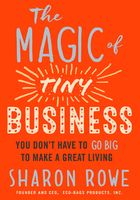busting the myths
FORGET EVERYTHING YOU THINK YOU KNOW
The amount of misinformation and confusion out there about raising capital from investors is staggering! I cannot tell you how many times I have been at presentations by “experts” and listened with amazement as they confidently informed the audience of “facts” about capital raising that were completely incorrect. If experts like lawyers and finance specialists are so often wrong on this topic, imagine how hard it is for the layperson entrepreneur to get the full and correct picture.
I have been on a mission for years to rectify this situation, which is why I wrote this book. Because so many lawyers and other so-called experts seem to be too lazy to take the time to understand the full spectrum of capital raising options and because they also seem to be unwilling to admit when they don't actually know something, entrepreneurs are constantly making huge mistakes with their capital raising efforts that can cost them time, money, and even their business.
Why am I so well qualified to give you the truth about capital raising? Due to an accident of my career path, my approach to capital raising is different from that of most lawyers.
I started my legal career as in-house counsel at a nonprofit organization in Oakland, California. While I was there, I worked on lots of very interesting projects, such as building a mixed-use transit-oriented real estate development and starting and running businesses that were subsidiaries of the nonprofit, with the goal of creating jobs and wealth in the low-income community where the nonprofit was based. After eleven years, I left to join a small boutique law firm that focused on helping mission-driven businesses (aka social enterprises—any business that makes a positive impact in the world through its products or services, its contribution to its community, its treatment of its workers and suppliers, and/or its commitment to caring for the environment) start up and raise capital. The founder of the law firm was one of the nation's top securities lawyers. I barely knew what securities law was! He taught me that securities law is what governs how businesses can raise money from investors. I started to learn about securities law, and found it fascinating. So, even though I had eleven years of experience as a lawyer, I approached this area of law with a beginner's mind. I had never learned all the conventional wisdom about how securities law is practiced. (Luckily, the founder of the firm was very open minded and entrepreneurial, so he didn't fill my head with the conventional wisdom either.) Though I didn't know it at the time, I was approaching securities law in the way described by Dorie Clark in this quotation from her book Stand Out:
Every field has useful guiding assumptions. Received wisdom saves time—you don't have to reinvent the wheel . . . but it can also be a trap, preventing you from exploring new ideas . . . You don't succeed by following the rules and thinking exactly like everyone else; you need to ask “what if?” and “why not?” . . . What would [an outsider] make of how things are typically done? . . . Might there be a new or different way of doing things?[9]
This attitude allowed me to see possibilities that other securities lawyers didn't seem even to be aware of.
Most lawyers try several different practice areas and find that there is one area of law that they really enjoy. For me, that was securities law. There was something about it that I found fascinating, fun, and exciting. I was completely hooked on learning as much about it as I could. I read every book I could get my hands on, talked to every securities lawyer I could pin down, and read the actual statutes, rules, and case law. Believe it or not, a lot of lawyers never bother to do this. It is amazing all the things you can find when you really read this stuff. I'll give you a nerdy example of this: There was a young aspiring lawyer who was apprenticing for me. I asked her to look something up in the California securities statute. She said, “Jenny, have you ever noticed Section 25102(e) of the statute? It is a provision that exempts privately offered debt from the usual compliance requirements!” We were both really excited to discover this little nugget in the law that would make it a lot easier for some of our clients to raise capital.
I spent years studying the law of capital raising. I assumed that all securities lawyers knew the same things I did, but I found out that many of them don't. This is because there is a certain well-worn pathway for raising capital that is relatively easy for lawyers to follow for their clients. This is the pathway used by businesses that are raising money from professional investors like angels and venture capitalists. Most lawyers don't bother to learn any other pathway. This is a real shame, because there are many others. I love to help entrepreneurs figure out the exact right one for them.
So forget everything you think you know about raising capital from investors. I promise you that this book contains legally correct information and contains basically all of the legally correct information about how small businesses can raise money from investors—not just the truth, but the whole truth. Of course, as I noted earlier, the law does change from time to time, so please check the readers' resources website for updates. (See the resources section at the end of the book for details on how to access it.)
LET'S BUST SOME MYTHS
Let's bust some myths about what it means to raise money from investors. Here is some of the conventional wisdom that you've probably heard or read on the Internet:
1. You can only raise money from investors if you are going to grow your business very fast and have a “liquidity event” (sale of the company or initial public offering [IPO]) in which the investors make thirty to fifty times their initial investment.
2. Try to delay offering equity to investors for as long as you can because that is the most expensive money you can get.
3. Even though you have to give up a lot of ownership and control when you raise money, the good thing about it is that your investors have experience and contacts in your industry, so they can advise you and make great connections for you.
4. The investors set the terms of the investment—you are at their mercy.
5. If you raise money from investors, you have to give up control, and your investors become your boss.
6. Once you have investors, you must put their interests first, above those of all other stakeholders, or you risk being sued.
7. Investors consist of very wealthy individuals and organizations. They are all looking for basically the same thing, and you need to tailor your business to fit what they are looking for.
Although these statements are true for certain types of investors and investments, they are not universally true. In fact, in my experience (having helped my clients raise millions of dollars and having raised several hundred thousand for my own business), the following statements are true:
1. The vast majority of investors are satisfied with a financial return that is much less ambitious than what angels and venture capitalists demand. (Note that studies of the venture capital industry demonstrate that actual returns are much lower than the hype would suggest.) And most investors consider a lot more than financial return when making investment decisions.
2. You can design any type of investment offering you want—it does not have to be “expensive.”
3. It is possible to raise capital (equity or debt) without giving up any control.
4. Investors can get healthy returns from steady-state businesses (i.e., ones that do not grow explosively). A liquidity event is not required for investors to get paid back.
5. The “smart money” that supposedly comes from professional investors (i.e., all that expertise that we are told they have) is questionable. Some professional investors can be a huge asset to the companies they invest in; others will take the company in the completely wrong direction. The founders often know a lot more about the right direction to take their business than an outside investor does.
6. It is possible to design a company and its financing strategy in a way that reduces the likelihood of lawsuits for failure to maximize investor return.
7. The universe of investors encompasses far more than angels and venture capitalists, and each investor is unique.
Let me quote one investor I know, Kate Poole, so you can really get a sense of how truly opposite of the stereotypical investor a real investor can be:
I lived at an anti-capitalist commune in Thailand and got really fired up about how capitalism was destroying people and the planet. I wanted to do something to fight capitalism. I found out that my family's wealth was invested in huge evil mega-corporations that were destroying the planet and communities and extracting wealth in an unhealthy way. I organize other young people with wealth to shift control of capital to communities that are most affected by economic and climate crises, especially racialized wealth extraction. As a white inheritor of wealth, I want to invest back in the communities wealth has been taken from.[10]
I hope that you are starting to believe that raising capital from investors can be very different from the much-hyped venture capital model celebrated on the cover of Fast Company magazine.
In the next chapter, we will dive into determining how ready you are to raise capital.















